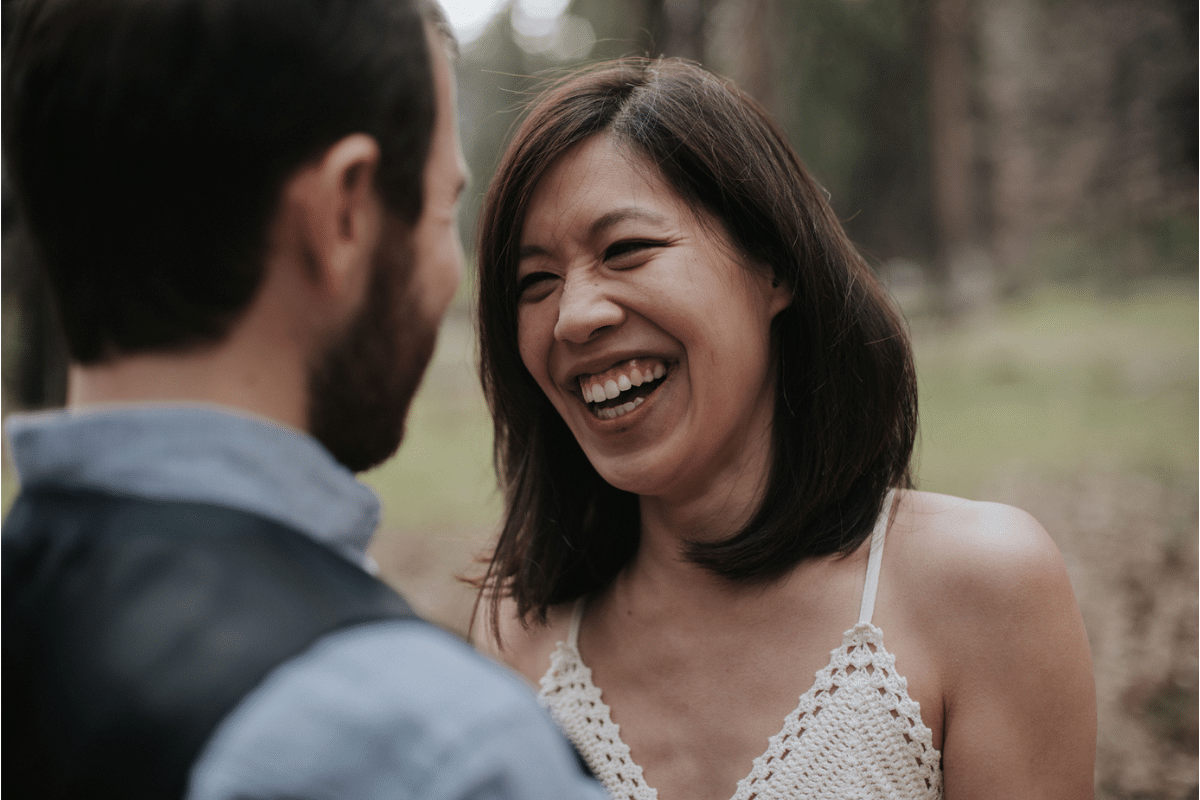One of the most common enquiries we receive is from couples who are looking for advice to nurture their first year of marriage.
If you search online, you’ll probably find an avalanche of articles with various opinions, some warning it can be a challenging year. In fact, they might go as far as to say that the first year can set the tone for your whole marriage (no pressure, right?).
It can be incredibly overwhelming for couples to digest all of this, while balancing planning a wedding and everyday life.
To sift through the noise, we sat down with Judy, one of our senior counsellors at Relationships Australia NSW, and sought her advice. Judy has 35+ years’ experience in couples counselling so you can feel rest assured she has met all types of couples and the expected (and unexpected) challenges they face.
#1: Be kind and manage your expectations
Before we dive any deeper, we recognise and see many couples today are changing norms and the “traditional” order of doing things. This might mean they may live together for an extended period or have children before marriage – or, choose not to get married at all. So, why does advice specific for your first year of marriage still matter?
Whether you expect it or not, being married can and does change what you expect of your partner. Ideas you didn’t know you had about the roles of a ‘husband’ or a ‘wife’ might surface and create tension.
Think: who takes out the rubbish, manages the social diary, is ‘in-charge’ or across the finances, or plans meals, grocery shops and cooks.
Often you won’t realise these assumptions until you bump into one and find that you don’t think the same way about it. When this happens, be willing to think about where your ideas come from, so you can openly discuss them with your partner, and find a way forward together.
#2: Have the tough conversations
If you haven’t already tackled the ‘big’ conversations before you get married, they should be on the priority list for the first year. Some of the main topics to think about:
- Having kids (and any expectations or preferences on timing)
- Managing finances
- Sharing the mental load
- Respective careers and jobs
- Your individual and shared goals
These conversations can be tough, but they lay the groundwork for a shared understanding of the relationship and marriage you want to shape together.
It’s always better to be open and transparent, rather than assume and discover later you’ve assumed wrongly.
# 3: Few things are set in concrete – flexibility is key
Differences between the two of you are bound to arise, and it provides the opportunity to think through your options and how to proceed.
Once you make a decision, it doesn’t have to be that way forever and you shouldn’t feel pressure to stay the same. For instance, you might agree to move interstate for a partner’s job, but decide after two years that it’s no longer working for you.
You should revisit your decision, check in with yourself and partner, and see if it’s working the way you expected it to. If not, it’s worth trying something else.
#4: Keep courteous
It’s very easy to overlook the small courtesies when life is busy, and especially if you’re frustrated or annoyed with your partner.
One of the common complaints and questions that we get asked in couples counselling is whether to thank your partner for “doing something they should already be doing”. Maybe they’ve vacuumed the floors out of the blue or meal prepped for the week ahead.
Judy’s simple advice: if you like to be acknowledged or thanked for your efforts, then assume your partner would, too.
While saying this, it’s still important for couples to have ongoing conversations around the mental load and sharing of domestic and relationship tasks.
#5: Be an ‘H’
Wondering what an ‘H’ is? Let us explain!
Visually, the letter looks like two separate people who are still connected to each other. You should be different to your partner – have different interests and hobbies, individual friendships, and spend time solo and with other people.
Relationships where partners encourage the other to keep growing, developing and evolving keeps things interesting and strong. The key is to find the right balance of togetherness and separateness – too much of either risks eventually becoming problematic.
Two individuals who can stand independently, but still connected, make for stability and balance in a relationship.
#6: Sharing the load
It’s completely normal in a relationship for one partner to temporarily carry a bigger portion of relationship tasks than the other. They might be picking up more of the domestic load when the other is under the pump at work, studying, or looking after a family member.
This situation will likely see-saw and, at times, you might both feel like you have little energy to bring to the relationship. That’s the time you need to get together and work out how you’re going to use your combined energy and time to hold things together until things slows down a little more.
Most importantly, while marriage is a big commitment between two people, it’s not something you have to navigate alone. You can get a helping hand from one of our couples counsellors, or join a group workshop, with other couples to hear about their experiences.
Relationships Australia NSW offers Couples Counselling services, both in-person and online. We also offer a number of Group Workshops, such as Couples’ Communication, to help you learn the skills to talk through issues with your partner more effectively.
Related Services & Workshops

Counselling.Couples.Mental Health.LGBTQIA+
Couples Counselling
Relationships can be tough, and sometimes we all need some extra support and guidance to help us move forward. Couples Counselling at RANSW offers a supportive environment where you can discuss concerns, overcome tensions and strengthen your partnership.

Counselling.Couples.Life Transition
Prepare and Enrich
It’s normal to experience mixed emotions when embarking on the next phase of a relationship. Whether you’re excited, anxious or somewhere in between, Prepare and Enrich will help empower and strengthen your partnership into the future.






